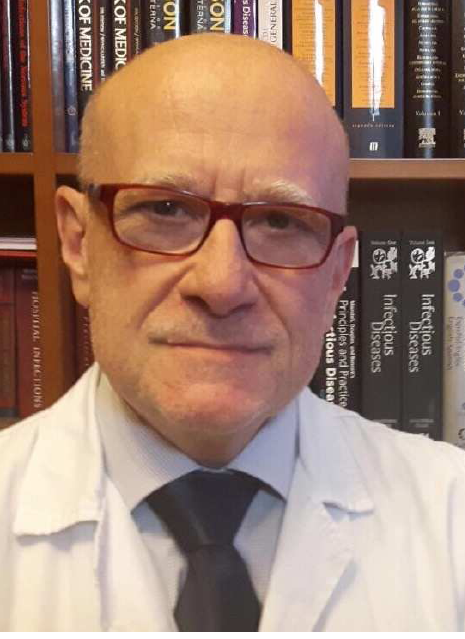
Fosfomycin for the Treatment of Asymptomatic Bacteriuria and Cystitis in Kidney Transplantation: new uses of an old antibiotiotic in the era of multidrug-resistance
Jose Tiago Silva1,2, Francisco López-Medrano1, Elisa Vidal3, Carlos Armiñanzas4, Antonio Moreno5, Esperanza Merino6, Rosa Escudero7, Isabel Pérez-Flores8, Domingo Hernández9, Jose Maria Aguado1.
1Unidad de Enfermedades Infecciosas, Hospital Universitario 12 de Octubre, Madrid, Spain; 2Servicio de Patología Infecciosa, Hospital Universitario de Badajoz, Badajoz, Spain; 3Unidad de Gestión Clínica de Enfermedades Infecciosas, Hospital Universitario Reina Sofía, Córdoba, Spain; 4Unidad de Enfermedades Infecciosas, Hospital Universitario Marqués de Valdecilla, Santander, Spain; 5Unidad de Enfermedades Infecciosas, Microbiología y Medicina Preventiva, Hospital Universitario Virgen del Rocío, Sevilla, Spain; 6Unidad de Enfermedades Infecciosas, Hospital General Universitario de Alicante, Alicante, Spain; 7Servicio de Enfermedades Infecciosas, Hospital Universitario Ramón y Cajal, Madrid, Spain; 8Servicio de Nefrología, Hospital Clínico San Carlos, Madrid, Spain; 9Servicio de Nefrología, Hospital Carlos Haya, Málaga, Spain
Background: The number of urinary tract infections (UTI) caused by multidrug-resistant (MDR) Gram-negative bacilli (GNB) in kidney transplant recipients (KTR) is increasing. Fosfomycin could be a suitable alternative, especially when other effective oral antibiotics are absent.
Materials and Methods: We performed a retrospective study including 14 Spanish hospitals. KTR treated with oral fosfomycin for cystitis or asymptomatic bacteriuria (AB) between 2005 and 2017 were included. Patients that concomitantly received another active antibiotic were excluded. We defined “clinical cure” of patients with cystitis as the remission of UTI symptoms at the end of treatment.
Results: A total of 326 KTR (42% males) developed 353 episodes of UTI (40.5% cystitis and 59.5% AB) treated with fosfomycin (11.9% of cases after the failure of a previous antibiotic treatment). 79 recipients (22.4%) had a urinary catheter (double J stent [14.4%]; urethral catheter [9.6%]). 333 episodes were produced by a GNB (94.3%), 57.0% were identified as MDR (16.5% extended-spectrum β-lactamase (ESBL)-producing Enterobacteriaceae; 3.3% of carbapenemase-producing bacilli). Gram-positive cocci accounted for 20 UTI (5.7%), especially Enterococcus spp. (12 episodes [60.0%]). A median dose of 2 g daily of fosfomycin (IQR: 1.5-3) was prescribed, for a median of 7 days (IQR: 3-9). There was clinical cure in 119 KTR (83.8%) treated for cystitis. Only 56 of these recipients had a urine culture performed within the first two weeks after stopping fosfomycin; in 44 (78.6%) it was sterile. In the case of AB, 99 KTR (48.3%) had a urine culture performed within the first two weeks after stopping fosfomycin; it was sterile in 50 (50.5%). No serious adverse events related to fosfomycin were reported.
Conclusion: Fosfomycin appears to be safe and effective for the treatment of cystitis and AB in KTR. Its availability is especially important for the treatment of infections produced by MDR bacteria with poor alternative antibiotic options. Countries in which oral fosfomycin is not available should consider its commercialization.
On behalf of the Spanish Network for Research in Infectious Diseases (REIPI) and the Group for the Study of Infection in Transplantation of the Spanish Society of Infectious Diseases and Clinical Microbiology (GESITRA-SEIMC).
